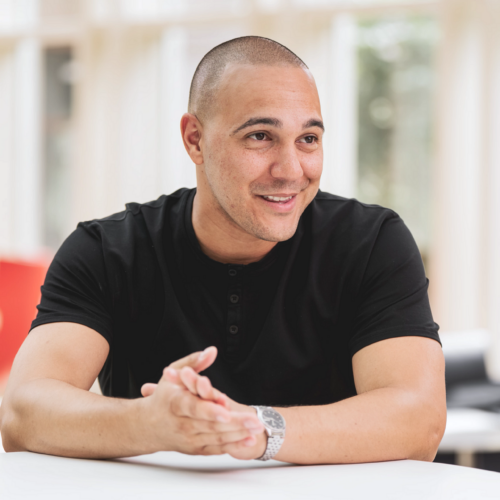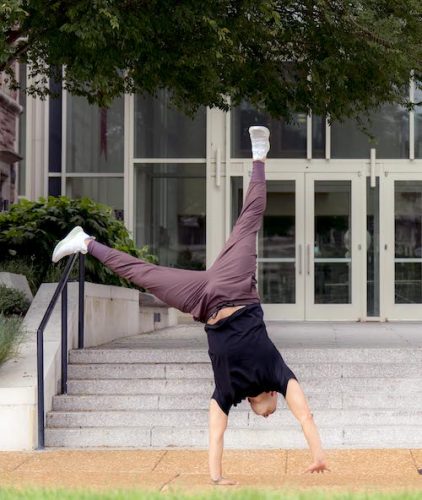The Brickers are loyal scholarship donors and active members of the WashU alumni community. Craig works in risk management as the head of portfolio management and credit risk review at UBS, and Stephanie is an assistant principal at Sayville High School in Sayville, New York.
Tell us about yourselves and how you met.
Stephanie double majored in Spanish and Russian studies at Muhlenberg College before coming to WashU for graduate study in Hispanic languages and literature. Craig came to WashU from Laurel, Maryland, to study mechanical engineering and then decided to pursue his interest in business at Olin through the BS/MBA program.
We actually met at the DeMun Laundromat. It was a rainy night, and Stephanie was trying to open the door while holding a basket full of clean laundry. Craig was walking by, opened the door and offered to walk her to her car under his umbrella. Seriously. We just celebrated our 25th anniversary and have twins who are high school seniors.
Since 2016, you have supported two scholarships, one for an Olin student and one for an Art/Sci student. What inspired you to create scholarships at WashU?
We both benefited from scholarships at WashU, such as the Guller Scholarship Craig received when he was admitted to the BS/MBA program. Scholarships made it possible for both of us to attend WashU, which was transformational in our personal development and careers. When we felt able to do so, we wanted to help others have access to what was a game-changing experience for each of us.
The opportunity to support a named scholarship gave us a way to remember two people who were very important to us. The Olin scholarship we have supported is named for Craig’s father, Thomas Bricker, who was proud to have both of his children graduate from WashU. The Art/Sci scholarship was named for Stephanie’s grandmother, Angelina Sousa, who came to the United States from Sicily as an infant and worked as a seamstress in New York City from a very young age.
Your family shifted your support to Make Way: Our Student Initiative and created a new centralized undergraduate scholarship. What motivated you to make this change?
Make Way is very much aligned with what we hope to do with our scholarship support—increase access—and so we fully support its objectives. While our scholarships began with specific schools, it is wider access to the overall WashU education and experience that we really want to support. We want the resources to be used where they are most needed, and the centralized scholarship model allows for a more efficient market.
You also serve as WashU ambassadors and have recruited many WashU students. Will you share what these experiences have meant to you?
Our interaction with the students has helped us stay and feel close to WashU. Students at Stephanie’s high school come to her excited about WashU and wanting to learn more about it. Craig spent most of his career at Goldman Sachs, where he enjoyed recruiting WashU students, seeing them develop as professionals, and then give back to WashU with their time and expertise, coaching and recruiting students that follow.
Photo: Craig, Anna, Stephanie and Cole Bricker.








